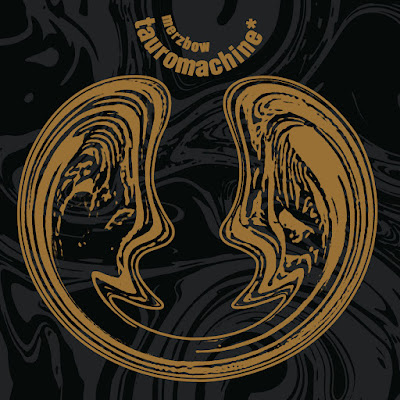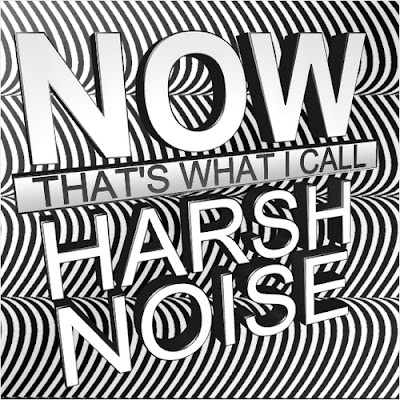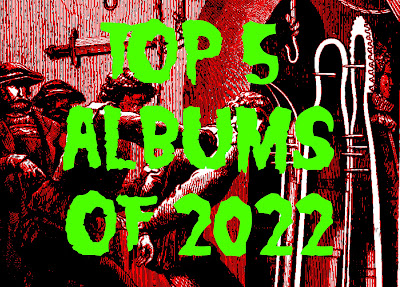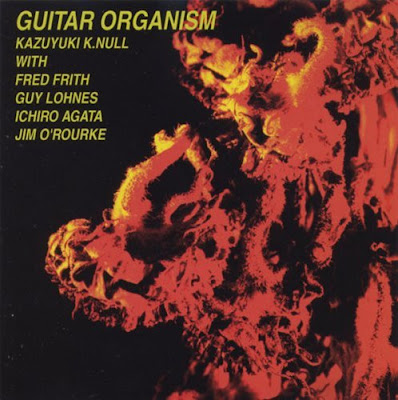PUKEHAMMER
N O I S E // A N N O Y S
Wednesday, May 15, 2024
STEVE, I WANNA SAY THANK YOU, FOR ALL YOU'VE DONE FOR ME
Thursday, May 11, 2023
SOFT WATER CANNIBALS
Sunday, April 30, 2023
MY NOISE ORIGIN STORY
I’ve always loved music and I think my interest in noise began as a byproduct of that when I was a teenager in the early/mid nineties. Like many young metalheads I was an aspiring guitarist, but there were many days where I spent as much time hooking up a bunch of effects pedals and seeing what kinds of fucked up racket I could coax out of my Squire Stratocaster as I did learning Metallica riffs (likely much to my mother’s dismay). The less it sounded like a guitar and the more hideous the sounds coming out of my amplifier got, the more I liked it.
Of course, alternative rock was also blowing up during this period and I found myself immediately drawn to the noisier bands, such as Sonic Youth, Shellac and The Jesus Lizard. I didn’t know who Merzbow was yet, not to mention the fact that I was only fifteen when his genre-defining harsh noise classic Venereology was released in 1994 (and wouldn't have been ready for it yet even if I had heard it back then), but thanks to albums like Washing Machine, At Action Park and Liar the seeds had been planted, even if they wouldn’t fully bear fruit for quite some time.
My real introduction to noise didn’t occur until 2004 with the release of Wolf Eyes’ Burned Mind. I can’t remember where I read a review of the album, but I was intrigued enough to track down a copy and was immediately blown away by what I heard; the rotten, filthy, fried and squelching sounds of “Stabbed in the Face” and “Rattlesnake Shake” were the sounds I had been unknowingly searching for in my room a decade prior when I was trying to make my guitar sound like a beehive that had been set on fire. By that time I was deep into my search for the most extreme and abrasive shit I could pollute my ears with and Burned Mind was a revelation. This was compounded by seeing Wolf Eyes live with Prurient in 2005, a total game changer that was unlike anything I’d witnessed prior in terms of live performance.
And I loved it.
Does this compulsion to bombard my brain with punishing sounds that I've developed over the past nineteen years make me some sort of masochist? Oxford’s defines a masochist as “a person who enjoys an activity that appears to be painful or tedious.” While listening to noise certainly can be painful, for me it’s more about a desire for chaos than it is about pain. My life has become increasingly defined by routine as I've grown older and while that's by no means a bad thing, I'll always crave a little chaos from time to time. To fully appreciate noise, you have to submit to its chaos, allow yourself to become fully immersed and let that chaos take you wherever it’s gonna take you. There’s something about giving yourself over to and losing yourself in the distortion and feedback that’s still utterly thrilling after nearly two decades of ear abuse.
Thursday, April 13, 2023
TWO MEN AND A NOISE ALBUM
Ever since forming in 1981, Osaka's Incapacitants have been establishing themselves as legends of Japanese harsh noise. Indeed, the duo of Toshiji Mikawa and Fumio Kosakai are responsible for many genre touchstones, and one of their most sought after releases is 1995's As Loud as Possible. Released by cult label Zabriskie Point during what was arguably one of the Japanoise scene's most intensely creative periods, the album has been long been out of print. Thankfully, Germany's Total Black was somehow able to secure the rights to reissue As Loud as Possible on CD, vinyl and digital, making it available once again to depraved noiseheads all over the world.
I was lucky enough to grab a CD copy of As Loud as Possible via American label/distro Cloister Recordings and was immediately struck by the quality of the physical product. Housed in a sturdy eight panel digipack, I unfortunately cannot say how it compares to the original release, but I can say that this new version looks fantastic. The extreme care with which Total Black put together this reissue is evident from the moment you take it out of the shrink wrap and is probably one of the most well-packaged noise discs in my collection.
But enough about how As Loud as Possible looks; it's the noise inside that matters and rest assured that Incapacitants kick up one hell of a racket here. Starting with "Apoptosis," the duo quickly establish a sound that is both dynamic and intense, stabbing at the listener’s vulnerable ears for over fifteen minutes with razor-sharp high-pitched frequencies, while crackling, rhythmic distortion continually bombards the mix. The focus on ever-shifting sonic architecture over sheer extremity makes for a rich listening experience that feels more immersive and less like an endurance test.
The album’s second track “Necrosis” begins with creepy-crawly distortion and from there the cacophony continues to build as more layers are piled on top of one another. This track has more of a psychedelic feel to it, with the lower tones being more prominent, while the aforementioned high-pitched frequencies that dominated “Apoptosis” are buried under the aural avalanche. This would surely be a great track to listen to in an altered state; one of those tracks that would likely make you question whether you’re hearing things that aren’t actually there. This feels like the prototype for the harsh noise wall subgenre, which goes a long way towards explaining why Sam McKinlay of The Rita was chosen to write the liner notes for this reissue.
As with many Incapacitants releases, As Loud as Possible ends with a mammoth live track. "Live 950401" captures Incapacitants at their most ferocious, as the duo pushes the distortion and feedback so far beyond the red that one can't but help but imagine the audience leaving the venue with their brains oozing out of their ears. But as harsh as it is, it's also strangely mesmerizing, as if combining the sonic violence of "Apoptosis" and the battering psychedelia of "Necrosis" into a perfect, terrifying noise assault.
As Loud as Possible is an exemplary Japanese noise album and every bit the classic that more well known discs from the mid-to-late '90s such as Pulse Demon and Frequency LSD are. It's hard to fathom that it took nearly three decades for As Loud as Possible to be reissued, but the obvious reverence with which Total Black put together this remastered and revamped version has made it more than worth the wait. It's a must-have for collectors and a key historical document from one of the most important periods in the development of harsh noise.
https://totalblack.bandcamp.com/album/as-loud-as-possible
Saturday, December 3, 2022
TOP 5 ALBUMS OF 2022
Given that the blog has only been active for a couple months, I wasn't even sure I was going to do a year end list. But, the music nerd in me simply couldn't resist. So, without further ado and in alphabetical order, here are five albums that I enjoyed the heck out of in this, the year of our lord 2022.
Bastard Noise & Merzbow - Retribution by all other Creatures (Relapse Records) On Retribution by all other Creatures, Japanese God of Noise Merzbow and West Coast sonic terrorists Bastard Noise unleash just over an hour of music that's sometimes cold and cavernous and at other times relentlessly ultra-violent and punishing. Whether sounding like a malfunctioning eighties arcade game that's being lowered into a vat of acid or a swarm of crackling, crawling glitched-out fuzz, the album is consistently compelling from start to finish and never becomes so harsh as to become completely unlistenable, but at the same time never lets up enough to be accessible to the average listener. Overall, it's a pleasurably unsettling listen that perfectly showcases the sick sounds both artists are capable of and serves as a great reminder that Relapse was once just as much an institution for fans of noise and experimental music as it continues to be for fans of metal.
Boris - W (Sacred Bones Records) One of the many wonderful things about Boris is that you never know which version of the band you’re going to get from album to album, and for W, their debut on Sacred Bones Records, the chameleonic Japanese trio have largely stepped away from the crushing drone/doom and sludgy punk of recent releases such as Dear and No to present us with one of their most ambient and atmospheric collections of songs to date. The album sees guitarist Wata handling the bulk of the vocals and her delicate voice works perfectly with the dreamy minimalism of tracks such as “Icelina” and “Beyond Good and Evil." Boris blends elements of shoegaze, ambient and noise to create surreal soundscapes more suited for hallucinating than headbanging, and while the direction of W may disappoint fans of Boris’ heavier/doomier material, those who also appreciate their wildly experimental side will find a great deal to enjoy here.
Masonna / Prurient - Annihilationism (Hospital Productions) Holy. Shit. I haven't kept up with either Masonna or Prurient in recent years, but when I heard they were teaming up for a split, I absolutely had to check it out and now I wonder whether my ears will ever recover. Alternating tracks between the two artists, Annihilationism is one of the most utterly extreme and obliterating harsh noise releases I've heard in a good long while. Masonna hasn't lost a step since the days of Inner Mind Mystique and Spectrum Ripper and it's awesome to see Prurient has returned to harsher, uglier sounds after losing track of him around the time of Bermuda Drain. This thing is like having someone crack open your skull and take a belt sander to your brain, reminding me of the joy and terror I experienced when first discovering harsh noise via Relapse Record's massive mailorder catalog back in the late nineties/early two-thousands.
Oren Ambarchi - Shebang (Drag City) I'll be honest, I'm really only familiar with Oren Ambarchi thanks to his work with Sunn O))) and their spinoff bands Burial Chamber Trio and Gravetemple. I've been meaning to check out his solo work for over fifteen years now and I finally decided to jump in with Shebang because it's got a big piece of cake on the cover and I fucking love cake. Anyway, I also just so happen to love the way Shebang builds and builds over the course of its thirty-five minutes, beginning with unaccompanied guitar and slowly adding instruments until it blossoms into a full-blown ensemble piece that's jazzy and grooving, somehow managing to feel both thoughtfully composed and loosely improvised at the same time. While instrumental music often has a tendency to fade into the background, the playing throughout this constantly morphing composition is so captivating that you can't help but give it your undivided attention.
Wardruna - Kvitravn - First Flight of White Raven (By Norse Music) Technically, Wardruna's Kvitravn was a 2021 release, but it was re-released with a bonus live in the studio disc this year as Kvitravn - First Flight of White Raven and its probably the album I've listened to the most since it came out back in June. Lead by ex-Gorgoroth drummer Einar Selvik (aka Kvitrafn), Wardruna craft bewitching Nordic folk that incorporates a variety of instruments, with origins dating back as far as the stone age, deftly bringing the musical traditions of the past into the present. This stuff is pretty far outside the scope of my normal listening habits, but Wardruna's artistic energy is so unique that I can't help but be utterly mesmerized by tracks such as "Kvitravn" "Fylgjutal" and "Vindavlarljod." The album proper is so compelling that the live disc feels like icing on the cake, with Wardruna treating us to faithful versions of some of their most well-known songs, such as "Solringen" and "Helvegen."
Before I sign off on this one, I just want to say "thank you" to everyone that's stopped by to check out Pukehammer so far, I appreciate it more than you know. Hopefully we can get the comments section going in the new year as this thing starts to pick up some more steam; I'd love to start interacting with readers again. I've had a lot of fun writing these past few months, and that's something I haven't been able to say in a long time. Rest assured, more puke will be hammered in 2023 and beyond!
Thursday, November 17, 2022
WHITE RAVEN FLIES HIGH
Wednesday, November 9, 2022
HOSTILE ORGANISM
Over many years of collecting, I've had a knack for finding oddball CDs in random places and KK Null's Guitar Organism is certainly no exception. I'm not exactly sure what possessed me to look through the international section at the Rasputin Music in Fairfield, CA, but there it was, just waiting for some goddamn weirdo like me to happen upon it. After paying a princely sum of $2.95 for the disc, I took it home and popped it in my computer.
When most folks think of guitar albums, they immediately think of wankery; you know, dudes like Joe Satriani, Steve Vai and Yngwie Malmsteen doing widdly widdly shit on seven string guitars for as many minutes as they can cram onto a CD. But what assaulted my ears when I put on Guitar Organism was completely different from any "guitar album" I'd ever heard.
You see dear readers, Null, the legendary vocalist/guitarist/madman behind forward thinking bands such as Absolut Null Punkt and Zeni Geva, had a very, very different concept of what a guitar album could be back in 1996. As such, he assembled a motley crew of avant-garde players such as Melt Banana's Ichiro Agata, Naked City's Fred Frith and Gastr del Sol's Jim O'Rourke (later of Sonic Youth) and set about creating some of the most bat-shit insane guitar music ever put to tape. Granted, one might be hard-pressed to call what transpires over the course of this hour-long six-string fuckfest "music," as much of the album has more in common with Japanese harsh noise and the experimental side of dark ambient than it does with the more structured work of its personnel's respective main bands.
Although it isn't the opening track, the skin-peeling, anti-riff insanity of Guitar Organism really kicks off with the monolithic "Where We Exist," a nearly thirty-minute live collaboration between Null and Frith that sounds more like their guitars are being tortured as opposed to played. Essentially, if you've ever wondered what it would sound like if you let a bunch of violent rogue robots run amok at the Fender factory and then set the building on fire while they were still inside wreaking havoc, this is about as close as you're ever going to get. There is very little here, if anything at all, that resembles conventional guitar technique, making for an extremely challenging yet rewarding listen.
"Where We Exist" is bookended by "Double Headed Jet Pimiento" and "Love isn't Blind," which work perfectly as intro and outro pieces due to their short, repetitive, noisy nature. While these tracks are extremely enjoyable, I have to admit I expected something a little wilder from Agata given how bonkers Melt-Banana can get. Fortunately, Null and Agata saved their best for last with "Oriental Psycho Garden;" I'm not sure who's playing what here, but one guitar plays a reverbed arpeggio that would qualify as pretty-sounding if the second guitar wasn't attemping to strangle it from behind with distorted free-form noise.
In comparison to the other tracks, Null's collaborations with Guy Lohnes and O'Rourke are much more subdued affairs, but that doesn't make them any less interesting. "Vicious Circle" begins with crawling ambience before swarms of insectoid distortion enter the mix, but even when this occurs, the track maintains an eerie sense of calm. "Neuro Politics" on the other hand, sounds like UFOs from a 1950s sci-fi movie milling about aimlessly through the vastness of the cosmos, punctuated by what sounds like guitar strings being plucked using Freddy Krueger's glove. These two songs serve as a nice comedown toward the end of the album, offering respite from storms of distortion that came before.
Guitar Organism isn't an easy listen, but listeners with open minds and a taste for exploring extreme music's fringes will no doubt relish the opportunity to hear one of the Japanese scene's most idiosyncratic six-stringers do what he does best with a host of equally incomparable guest players. It is a testament to KK Null's ability to craft captivating experimental music, as well as his knack for choosing like-minded collaborators. If you're ever lucky enough to find a dirt cheap copy lying around like I did, don't hesitate to pick it up.
.jpg)


















